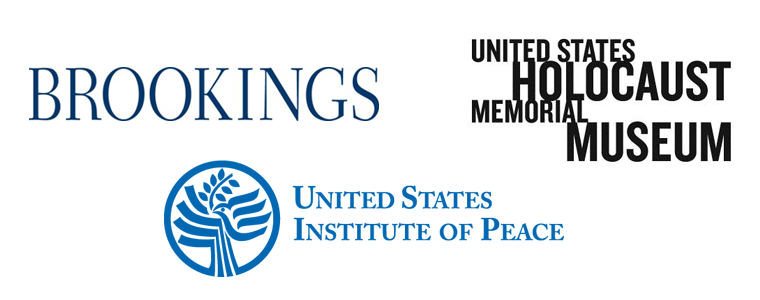The United States and R2P: From Words to Action
In this report, former Secretary of State Madeleine K. Albright and the late Ambassador Richard S. Williamson identify concrete steps to increase U.S. capacity in preventing mass atrocities.
As chairs of the Working Group on the Responsibility to Protect, they examine the utility of the R2P principle for the prevention of mass violence. The Working Group is co-hosted by the U.S. Institute of Peace, the U.S. Holocaust Memorial Museum, and the Brookings Institution.
Summary
- Implementing R2P faces political, institutional, and operational challenges. Expanding the set of tools for policymakers, supporting justice and accountability mechanisms, and narrowing the gap between warning and responses remain operational challenges to be met. Evolving U.S. and global institutions present new but uncertain opportunities for addressing mass atrocities.
- The Responsibility to Protect places primary emphasis on preventing mass atrocities before they begin. Acting before violence erupts or escalates allows for a wider array of tools and reduces both the financial and human costs of intervention, whatever form it takes.
- This report recommends a number of steps be taken to strengthen R2P: articulating a clear vision of U.S. support for all pillars of R2P, diplomatically engaging key like-minded states, pursuing a policy of positive engagement with the International Criminal Court (ICC), continuing to institutionalize steps to prevent atrocities, and developing additional uses for modern technologies to advance R2P objectives.
These recommendations provide a roadmap for the U.S. to enhance its global leadership on atrocity prevention and for the international community to advance its collective capacity to fulfill its obligations under the responsibility to protect.




